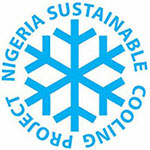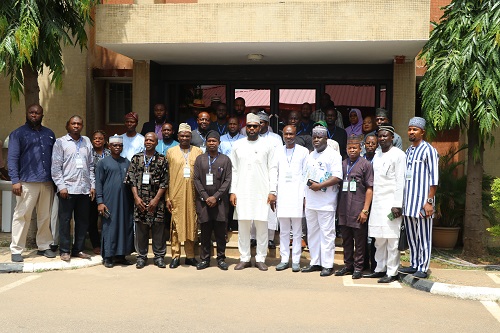By Oluchi Okorafor
The director-general of the Energy Commission of Nigeria (ECN), Dr. Mustapha Abdullahi has called on stakeholders to upgrade the Minimum Energy Performance Standard (MEPS) to boost energy efficiency in the cooling sector for enhanced value.
He made this statement at the one-day stakeholders workshop presenting the proposed Minimum Energy Performance Standards (MEPS) for air conditioners in Nigeria, organised by the Energy Commission of Nigeria, the United Nations Environment Programme (UNEP), the Standard Organisation of Nigeria (SON) and others.
The objective is to expedite the adoption of energy-efficient air conditioners with environmentally friendly refrigerants used in residential, commercial and public buildings, aligning with Nigeria’s climate targets in the Nationally Determined Contributions (NDC).
MEPS aims to curb energy emissions in the cooling system and enhance the efficiency of our cooling systems.
Abdullahi recalled that the Energy Commission of Nigeria (ECN), in collaboration with the United Nations Environment Programme, initiated the project – Scaling Up Energy-Efficient and Climate-Friendly Cooling in Nigeria’s NDC Revision in February 2022. The project is financially supported by the Clean Cooling Collaborative.
He emphasised that Nigeria is the largest market in Africa, which extends to the cooling sector and will continue to witness a surge in demand for air conditioners.
“With the current population growth, coupled with improving lifestyles, urbanisation and escalating global warming, Nigeria will remain a rapidly expanding market for air conditioners (ACs) and other cooling devices,” he stated.
Abdullahi pointed out that most ACs used in the country fall below internationally acceptable minimum energy performance standards (MEPS) in terms of energy efficiency ratio (EER). Hence, the significance of this Workshop on the proposed MEPS cannot be overstated. One crucial project component is the enhancement of minimum energy performance.
He stressed that the goal of this project is to review the MEPS of air conditioners. To achieve this goal, ECN, with technical support from the United Nations Environment Programme (UNEP) and in coordination with the National Technical Committee, conducted a study titled ‘Nigeria Air Conditioners Market Assessment.’
“The assessment involved gathering essential technical and market data, including energy efficiency levels, cooling capacities, air conditioner types, prices, market size and key market players in the Nigerian market.

“The study aimed to empower policymakers and regulators to make informed decisions for updating the MEPS and energy label policies to deliver cost-effective energy savings. The study results formed the basis for outlining new proposed standards for air conditioners in Nigeria.
“The study results informed the development of the ‘Recommendation MEPS and labels for air conditioners in Nigeria’ under the project,” he emphasised.
He mentioned that the revised National Energy Policy and its implementation master plan, containing energy efficiency policies approved by the Federal Executive Council on April 27, 2022, was officially gazetted and launched on May 8, 2024 by the commission.
The National Cooling Action Plan (N-CAP), developed by the Federal Government through the Ministry of Environment, recognises the importance of promoting energy efficiency in the cooling sector.
He assured that the commission will ensure that the Standard Organisation of Nigeria sets standards according to our MEPS and ensures that the cost of products entering the market is reduced.
In his speech, the acting director of linkages, research and consultancy department, Energy Commission of Nigeria, as well as the project director, Mr. Samaila Zaku emphasised that the stakeholders’ workshop is a step towards sustainable development and aligning with Nigeria’s climate goals outlined in the Nationally Determined Contribution (NDC).
He revealed that the commission is embarking on an initiative to expand energy-efficient and environmentally friendly cooling solutions nationwide.
According to Zaku, today’s discussions will primarily focus on the proposed recommendations derived from a study on the market assessment of air conditioners.
This study provided insights for updating the minimum energy performance standards (MEPS) and energy label policies in the cooling sector. The objectives of today’s meeting are to review the draft of the proposed MEPS and seek input and support for the upgraded standards.
The head of electrical electronics at SON, Eng. Lawal Ismilia assured that SON will strive to enhance the efficiency of air conditioners in Nigeria and review the standards so that air conditioners consume less energy for effective cooling.
He stated, “SON will ensure that air conditioners use less energy for cooling because they currently consume excessive energy. We cannot afford to waste energy; we need to manage it effectively.”
He urged stakeholders to review these standards to meet international expectations and ensure efficient energy utilisation for industrialisation.


